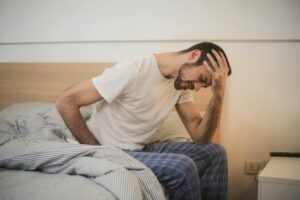Waking up to urinate at night? You are not alone.
Nocturia is a condition where one wakes up in the middle of the night to urinate. It is a highly prevalent problem which affects both men and women of all ages. The incidence of this condition increases with age with up to half of the population experiencing nocturia from the age of 50. Not surprisingly, nocturia is the most burdensome of urinary symptoms. Nocturia of 2 or more episodes a night is significantly associated with a decreased quality of life.
Nocturia adversely affects the quality of sleep which can lead to decreased productivity in the daytime. The condition also increases the risk of serious falls with injury at night. This condition can also put a strain on the health and disrupts the sleep of the patient’s partner or caregiver. There are a few possible causes of nocturia which we will look at.
Firstly, the patient may have an overactive bladder with increased sensations to urinate even when the bladder may not be full. Patients with overactive bladder usually have increased frequency of urination with sensations of urinary urgency in the daytime as well. Overactive bladder can be treated with simple therapies which can be taught in the clinic and patients can continue to do them at home. More severe cases of overactive bladder will require medication or urological procedures.
Nocturia may also be due to increased urine production. This increase in urine production can be due to an underlying medical problem such as diabetes, heart failure, obstructive sleep apnea, kidney problems and varicose veins. It could also be due to consumption of too much fluids, especially alcohol, and too much salt before sleep. Some patients may be on certain medications that increase urine production at night. If a contributing cause is found, the treatment of nocturia can be targeted accordingly.
A large proportion of patients may have increased night time urine production due to a loss of the circadian rhythm, which is the body’s internal clock. The urine volume during one’s sleeping hours should normally be less than one third of the whole day’s (24 hours) urine volume. Some people lose their bodies’ inherent ability to restrict urine production during sleep and end up passing large volumes of urine despite limiting their fluid intake at night. If this is established to be the cause of nocturia, the patient may benefit from taking a medication called Nocdurna, which can decrease the urine production at night.
Nocturia can be secondary to a sleep disorder which may require a multidisciplinary approach to treat. Some patients may suffer from more than one of the above conditions and each can be treated specifically.
To conclude, nocturia is a common but treatable condition. Finding out the cause can make a difference to your condition and quality of life.











